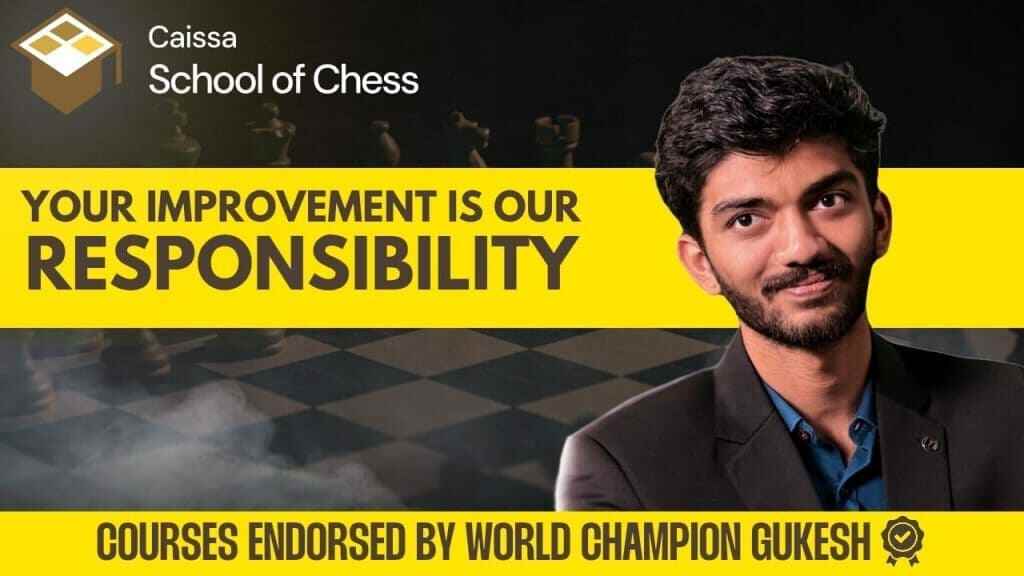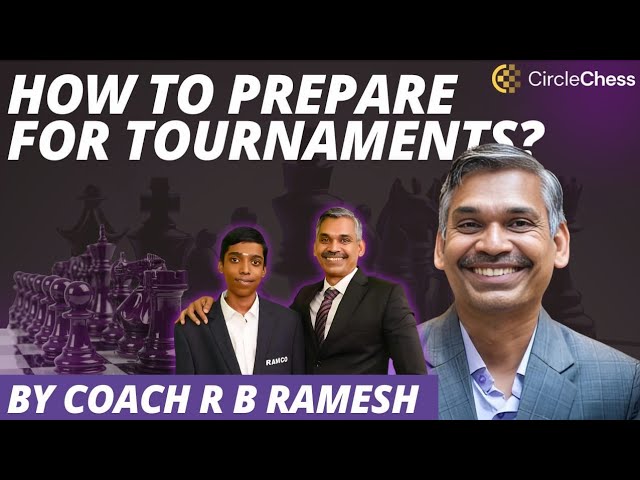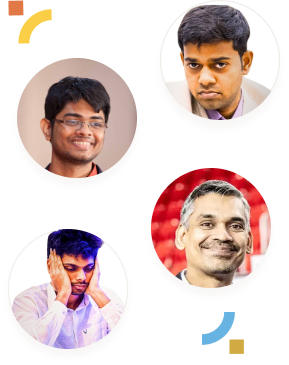Preparing for a chess tournament is not just about brushing up on opening lines or solving a few tactical puzzles. It is a deeply holistic process – one that encompasses mental fortitude, strategic understanding, and emotional regulation. Grandmaster R.B. Ramesh, one of India’s most successful chess coaches, shares an abundance of wisdom in his video, breaking down the essential components of tournament preparation. Whether you’re playing your first local event or gearing up for an international competition, Ramesh’s guidance will resonate deeply.
Understanding Your Current Level and Goals
One of the first things GM Ramesh stresses is the importance of self-awareness. Before even setting foot in a tournament hall, a player must understand their own current strength and limitations. This involves analyzing previous games critically, identifying recurring mistakes, and noting areas for improvement. A clear-eyed understanding of your skill level enables realistic goal-setting – not just in terms of tournament standings, but in the quality of games played and lessons learned.
Ramesh encourages players to focus less on results and more on the process. Winning should not be the sole objective; rather, your goal should be to play good quality chess. This mindset not only reduces performance anxiety but also fosters long-term growth.
Building a Robust Study Routine
Ramesh is a firm advocate of structured and consistent preparation. He emphasizes that ad-hoc training, especially last-minute cramming before a tournament, is largely ineffective. Instead, one should build a sustainable and methodical training routine well ahead of time. This involves a balance of opening study, middlegame understanding, endgame practice, and tactics training.
According to Ramesh, opening preparation is often overrated, especially for younger players. While it is certainly important to have a decent repertoire, obsessing over memorizing long lines can detract from understanding core concepts. Instead, players should aim to understand the ideas behind the openings they play – what kind of middlegame positions are likely to arise and what plans are typical.
Game Analysis: Your Best Teacher
One of the most powerful tools for improvement, Ramesh says, is analyzing your own games. This habit should be cultivated after every tournament game, irrespective of the result. More importantly, this analysis should be done without a computer at first. Try to understand why you made certain moves, where you went wrong, and what could have been done better. Only after this manual self-analysis should you consult an engine for additional insights.
This form of reflection helps you recognize patterns in your thinking process – both strengths and pitfalls. Are you rushing in time pressure? Are you overvaluing tactics and missing positional nuances? These are questions that self-analysis can answer far better than any coach or book.
The Mental and Emotional Game
Chess is not just a test of intellect; it is also a game of emotional resilience. Ramesh dives deep into the psychological aspects of tournament play, highlighting the importance of mental stability. He observes that many players lose games not due to inferior chess skills but because they are unable to handle pressure, especially after a loss.
To build this resilience, Ramesh advises players to treat each game as a fresh start. Dwelling on past blunders or fixating on ratings can severely hamper performance. A loss is not a disaster – it is part of the learning process. Likewise, one should avoid becoming overconfident after a win. Emotional neutrality helps maintain focus and balance throughout the tournament.
Physical Fitness and Daily Habits
Another often overlooked component of preparation is physical well-being. Ramesh points out that long tournament games can be physically taxing, and a tired mind is more prone to errors. Maintaining a healthy lifestyle, with proper sleep, nutrition, and some form of physical activity, is essential.
He also suggests having a fixed routine during tournaments – something that keeps the mind relaxed and focused. Whether it’s a short walk, light reading, or meditation, developing calming rituals can help players manage stress and maintain composure.
Learning from Others and Staying Curious
Ramesh strongly encourages players to study games played by top grandmasters – not just to learn new ideas, but to get inspired. Observing how strong players handle various positions can expand one’s own thinking and spark curiosity. Curiosity, in fact, is something he prizes greatly. Players who ask questions, explore positions, and stay genuinely interested in improvement tend to make faster progress.
He also highlights the value of discussing games with peers or coaches. Often, a different perspective can unlock insights that might be missed when studying alone.
Adapting During the Tournament
Even with thorough preparation, no tournament goes exactly as planned. Ramesh reminds players to remain flexible and adaptive. If you sense that a particular strategy isn’t working – for example, being too aggressive or too passive – you must be willing to tweak your approach mid-event.
He also shares the importance of post-round recovery. Don’t dwell on the result of the previous game. Whether it’s a win or a loss, process it, take the lessons, and move on. Emotional baggage can accumulate and affect subsequent rounds if not addressed promptly.
Growth Over Glory
The overarching theme of Ramesh’s advice is this: growth is more important than glory. Tournaments are not just about showcasing your skills – they are platforms for evolution. Treat each event as a stepping stone in your journey, not a verdict on your worth as a player.
If you focus on consistent improvement, build a resilient mindset, and develop a love for the game itself, the results will eventually take care of themselves. In the words of GM R.B. Ramesh, “Play good chess, and the results will follow.”






